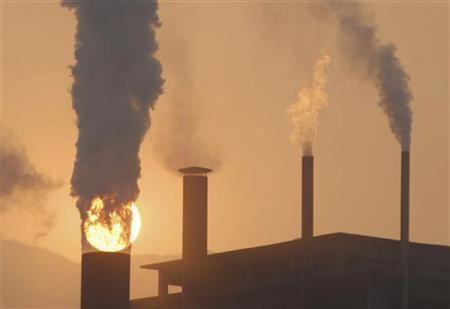According to the latest climate report, the growth rate of China's carbon emissions has been steadily declining since 2005, with a near-zero statistic in 2014.
The report, which was releases on Monday, comes despite the continued rise of global carbon emissions in the country. It was commissioned by Britain's Foreign Office and was a collaboration of researchers from China, the U.S., Britain and India.
The climate report presented the results and detailed assessment of the country's efforts in decreasing the amount of its carbon emissions.
Experts have cited better efficiency in China's major sectors, measures addressing air pollution, and the development of alternative and renewable source of energy as some of the factors in the carbon emission's growth rate decline.
Furthermore, researchers found out that by the end of last year, the country's energy density has already deceassd by nearly 30 percent for the past nine years.
"The national average efficiency of all power plants is now rising to among the best in the world," the report added.
China has also become the world's leader in renewable energy investments, sharing a quarter of the global tally of funds dedicated to the energy source's development.
The report also predicts that by the end of this year, China could take over Germany as the world's largest solar power developer.
As for the country's concern over air pollution, it has "set a cap for coal consumption in key regions, which will eventually extend to the whole country," the report stated.
Prof. David King, the report's lead author and Britain's climate change envoy, said that the Chinese government has been wanting to have a detailed analysis of the impacts of climate change, as it is aware of the challenges the situation poses.
Recently, China revealed its plan that by 2030, the carbon dioxide emissions per unit of GDP should have been reduced by 60 to 65 percent.



























